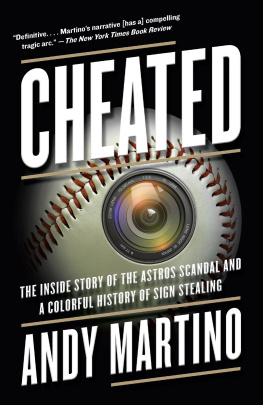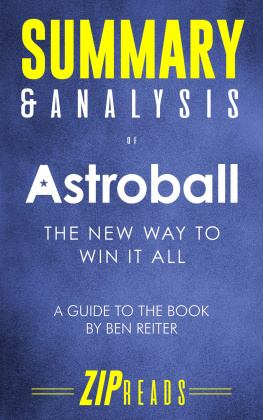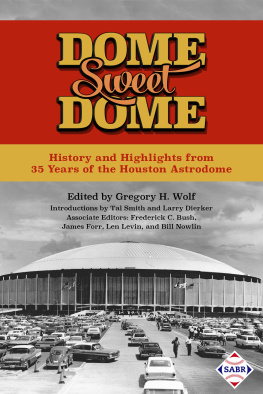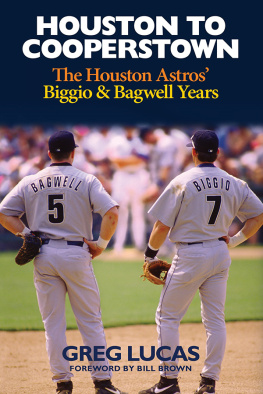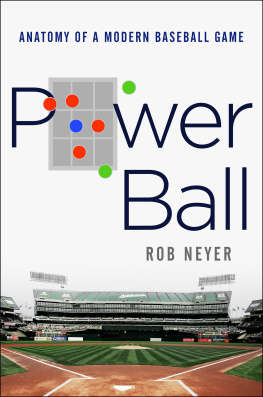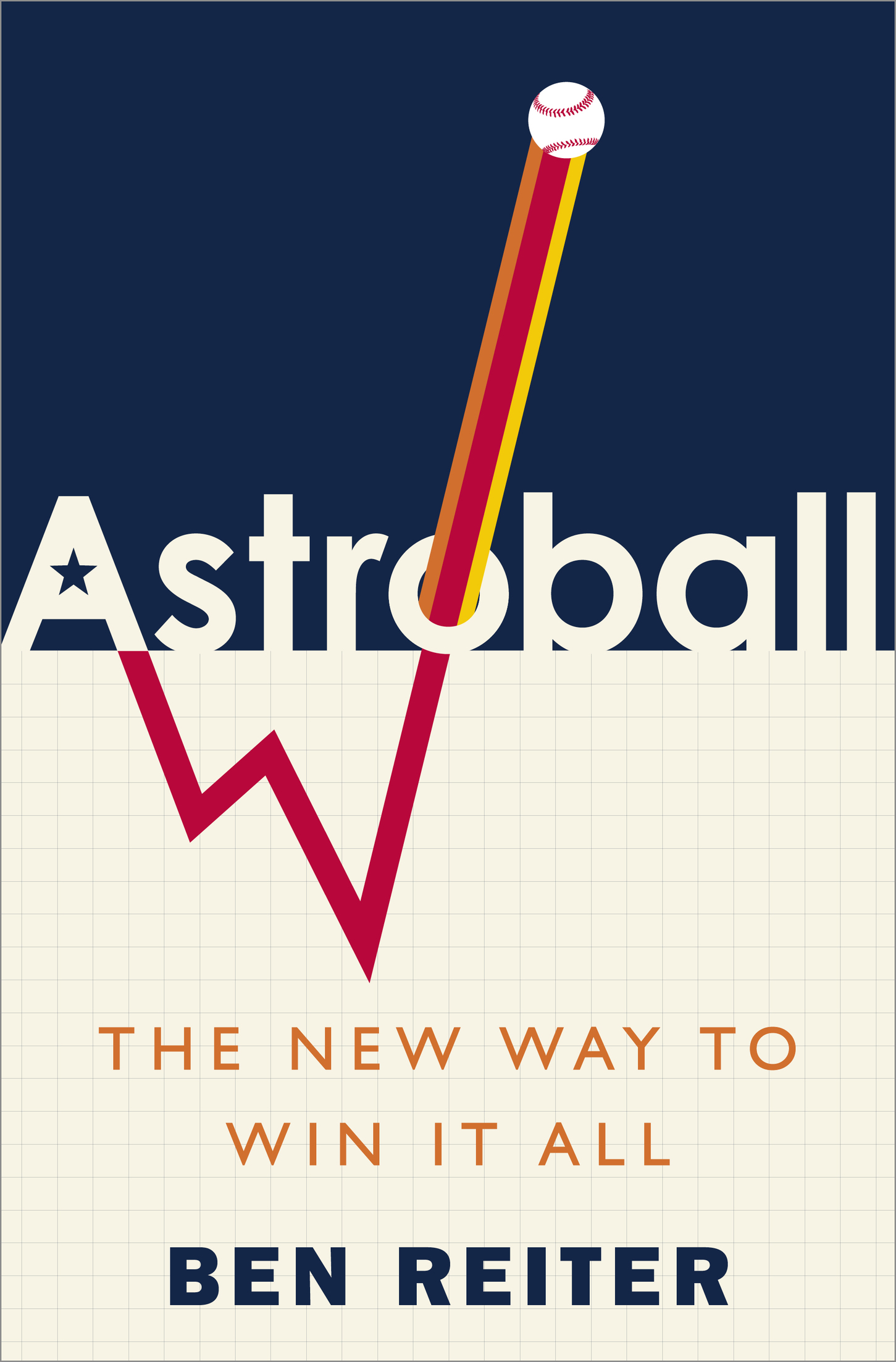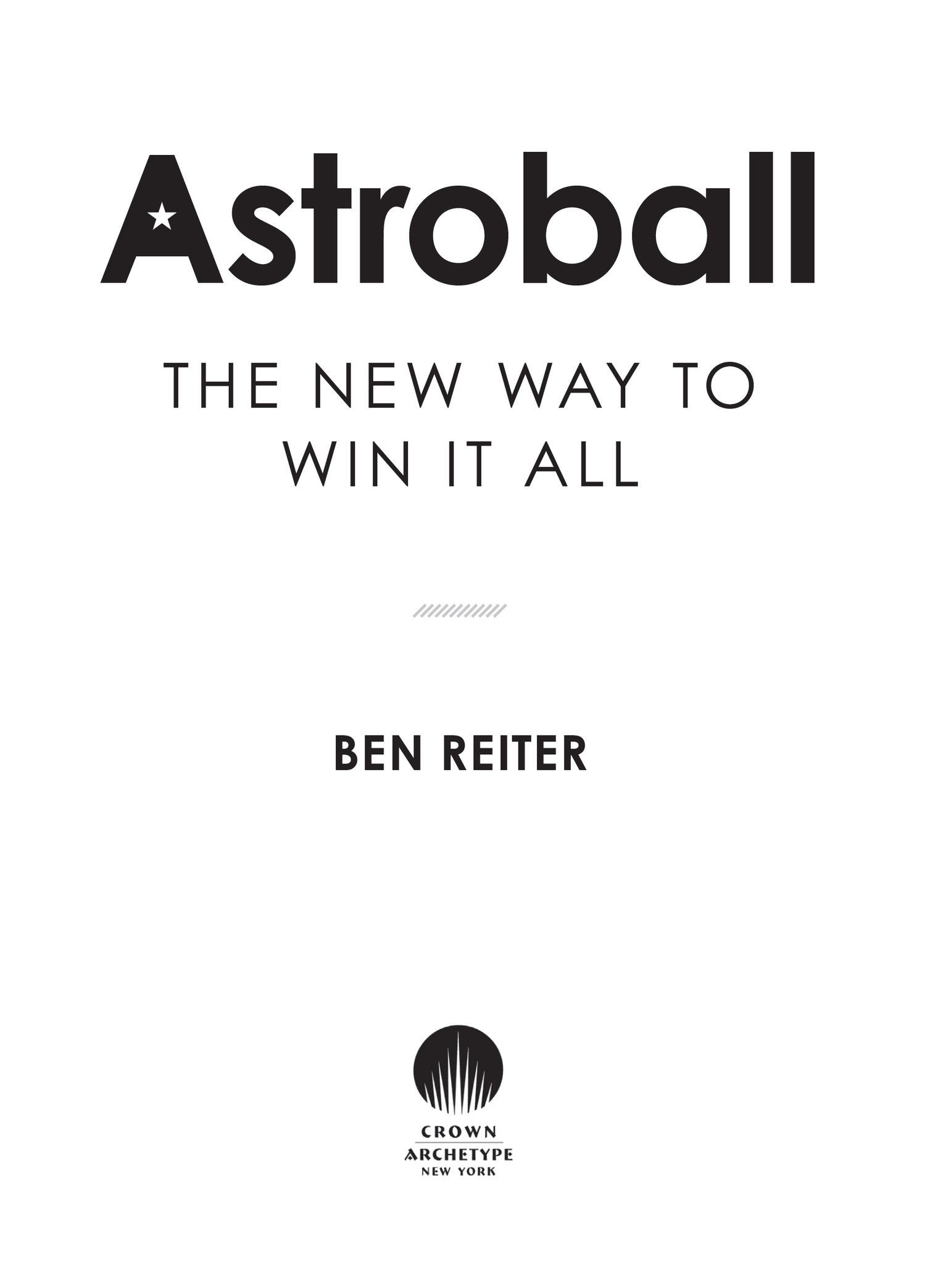All rights reserved.
Published in the United States by Crown Archetype, an imprint of the Crown Publishing Group, a division of Penguin Random House LLC, New York.
Crown Archetype and colophon is a registered trademark of Penguin Random House LLC.
Photography credits can be found on .
Library of Congress Cataloging-in-Publication Data is available upon request.
The most merciful thing in the world, I think, is the inability of the human mind to correlate all its contents. We live on a placid island of ignorance in the midst of black seas of infinity, and it was not meant that we should voyage far. The sciences, each straining in its own direction, have hitherto harmed us little; but some day the piecing together of dissociated knowledge will open up such terrifying vistas of reality, and of our frightful position therein, that we shall either go mad from the revelation or flee from the deadly light into the peace and safety of a new dark age.
H. P. LOVECRAFT, 1928
A mix isnt done til I feel it in my gut.
DR. DRE, 2014
PREFACE
THANK YOU FOR THE LAUGH
In June 2014, when I walked into the Houston Astros offices, located in the shell of the citys old Union Station, to begin reporting a story about the team for Sports Illustrated, one fact overshadowed everything else I knew about them, as it did for most everyone in the sporting world.
They were ludicrously bad.
The Astros were the worst baseball team in half a century. They lost 106 games in 2011, 107 games in 2012, and 111 games in 2013, the poorest performance over a three-year span since that of the expansion New York Mets in the early 1960s. Now they were on pace for another dreadful, last-place finish. They had received local television ratings of 0.0 for several of their games, meaning that Nielsen couldnt verify that a single Houstonian had tuned in. A more appreciable audience watched Alex Trebek make fun of the club with a $1,000 question on the November 18, 2013, episode of Jeopardy!:
THE LARGE VALVE
USED TO CONTROL
WELLBORE FLUIDS
ON OIL RIGS IS THIS
PREVENTER;
THE ASTROS COULD
HAVE USED ONE
What is a blowout preventer? answered a fifth-grade teacher from Cincinnati, correctly.
From the outside, the Astros appeared to be a run-of-the-mill, cheap, tanking team, albeit one unusually committed to both the cheapness and the tanking. While it might have been entertaining to explore the depths of their degradation, the truth was that Sports Illustrated and its editor, Chris Stone, would not have paid for my plane ticket to Houston, let alone published a feature about its terrible baseball club, without a good reason. I had convinced Stone that something about the losing didnt add up.
The Astros were run by executives who were said to be prodigiously intelligent and who had previously successfully led the scouting department of the St. Louis Cardinals. And yet in Houston all they did was lose, season after season, in the process becoming not just the laughingstock of baseball but of all of sports. After nearly a year of discussions, the organization promised me virtually unprecedented access to its inner workings, for a period that encompassed the first rounds of the 2014 amateur draft and a home series against the Los Angeles Angels.
They had to have a plan. I wanted to discover what it was.
What I found surprised me on several levels. No, the members of the Astros front office did not anticipate that the club would win in 2014, as it hadnt in 2013 or 2012. They werent exactly tanking, either, as least in the traditionally understood manner: losing in order to secure high picks in the following years draft. High picks came anyway. The week I was embedded with them, they would make their third No. 1 overall selection in a row.
But that was only part of a grand, unified strategy in which they would not make one decision or spend a single dollar that might delay the creation of a team that could be not just a champion but a dynasty. Struggling sports teams had played for the future many times before, but never with such a purity, as the Astros called it, and theyd never been so open about their intentions. This began before the NBAs Philadelphia 76ers initiated The Process, and before the NFLs Cleveland Browns started whatever they did in the mid-2010s. This was new.
Even more intriguing was the manner by which the Astros executives were making their decisions. Baseball was more than a decade into its data revolution, and many of the men now running the Astros had begun their careers in tech industries. One of them had even been a rocket scientist for NASA. So they understood Big Data, and they had built a department to parse it and harness its power.
Crucially, they also recognized its shortcomings, with which the world at large had only begun to wrestle. In a way, thats the subject of this book.
But Im getting ahead of myself.
Just two years before, The New York Times had heralded the Age of Big Data, extolling the limitless potential of computers to scour and analyze what had previously been incomprehensibly enormous, or simply nonexistent, troves of information to, among many other things, curtail crime, stifle outbreaks of disease, link romantic partners, and make investors buckets of money. Big Data would uncover hidden patterns in the way the world worked, allowing us to solve its mysteries and, by projecting those patterns forward, even predict the future.
By the next year, it had become a hackneyed corporate buzzword. One blog combed through transcripts and determined that the phrase had been used 43 percent more often in Wall Street conference calls and investor presentations in 2013 than 2012. The term sounded cool in a TED Talk, but in reality it was only as good as the data itself and the algorithms used to process it, and more often than not, those were incomplete and flawed. As it had begun to turn out, an overreliance on it as a decision-making engine could lead to increased racial bias in the criminal justice system, flash stock market crashes, and the mass firing of talented teachers, as well as, the Astros believed, middling and one-dimensional baseball teams. One day, a presidential campaign would rely on what it proclaimed to be the most advanced data operation in the history of politics to determine that its candidate hardly needed to campaign in several battleground states, like Michigan and Wisconsin, so certain was her chance of capturing their electoral votes.


